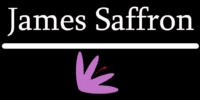Whilst also referred to as ‘the high priest of globalisation’, Friedman is well aware that it is the tensions created by globalisation that have paved the way for the election of Donald Trump. Nevertheless, when he comes to the Intelligence Squared stage, Friedman’s argument differs to that of Trump’s promises of walls and tariffs, it is instead openness to trade and ideas that is key to us thriving amid the rapid, startling changes sweeping through the world.
Technological change has continued to sweep the world at an alarming rate wiping out jobs and transforming workplaces as it does so, it is no wonder that electorates have reached for Trump’s protectionist solutions in the US and nativist retrenchment in the UK.
Friedman argues that the forces of globalisation needn’t spell disaster. Instead, how we respond to these accelerating changes will determine whether we falter or flourish. Friedman refers to both the EU referendum and US Presidential elections not as a battle between left and right but instead between ‘Wall People’ – those who feel their identity threatened by globalization – and ‘Web People’: those who instinctively embrace the current pace of change and are therefore keen to collaborate in a world devoid of any walls.
On 23rd January, Friedman will offer his guide to updating our lives and institutions for the accelerating changes of the 21st century. This will include:
■ The need to innovate not just technologically, but politically: moral leadership in a complex world is becoming ever more essential
■ How political leaders should be accelerating local start-ups in both the economic sector and the social sector, to build resilient and prospering citizens
■ And the ideal skill set for the jobs of the future: ‘stempathy’: science, technology, maths – and empathy Join us on for this un-missable event, and hear how the new asset class is not information but ‘human capital talent’, and how we can all thrive in the age of accelerations.
Join triple Pulitzer winner Thomas Friedman as he offers his guide to updating our lives and institutions for the accelerating changes of the 21st century









